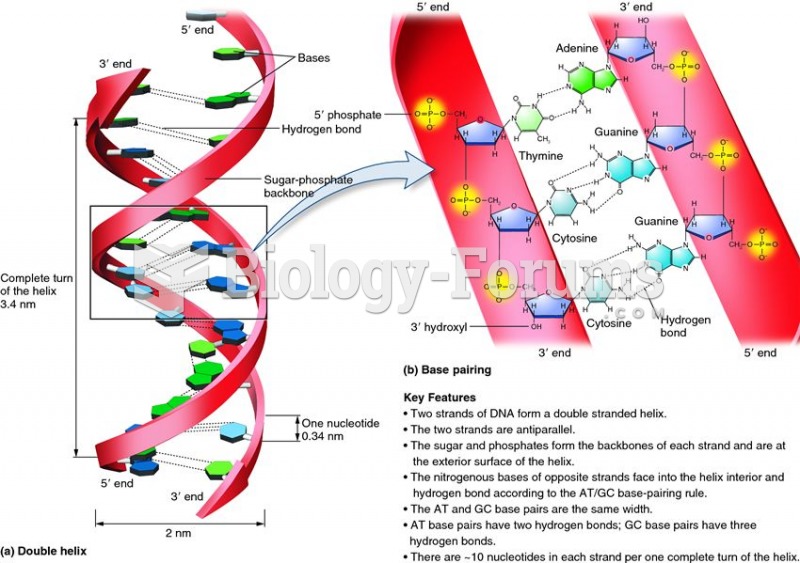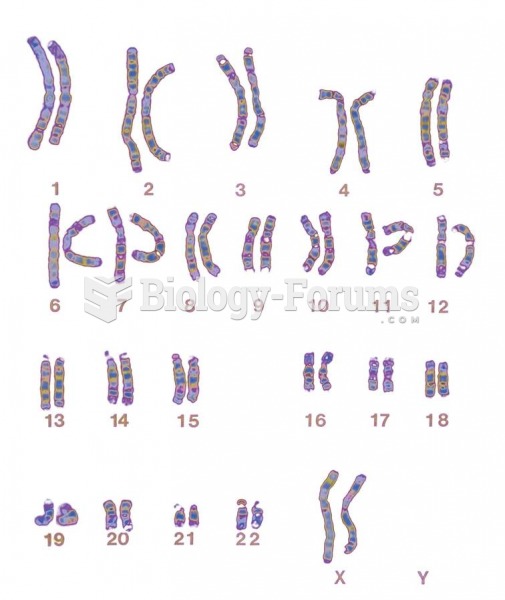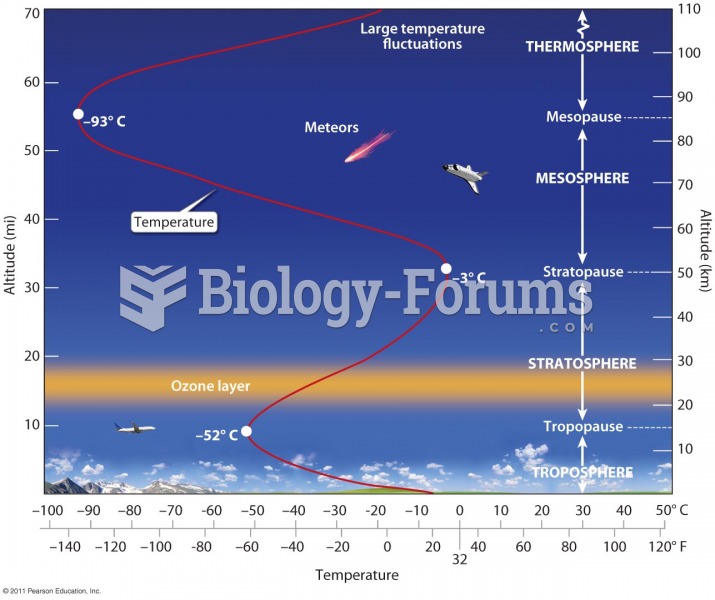|
|
|
Women are 50% to 75% more likely than men to experience an adverse drug reaction.
Eat fiber! A diet high in fiber can help lower cholesterol levels by as much as 10%.
Human neurons are so small that they require a microscope in order to be seen. However, some neurons can be up to 3 feet long, such as those that extend from the spinal cord to the toes.
Cancer has been around as long as humankind, but only in the second half of the twentieth century did the number of cancer cases explode.
Though methadone is often used to treat dependency on other opioids, the drug itself can be abused. Crushing or snorting methadone can achieve the opiate "rush" desired by addicts. Improper use such as these can lead to a dangerous dependency on methadone. This drug now accounts for nearly one-third of opioid-related deaths.







